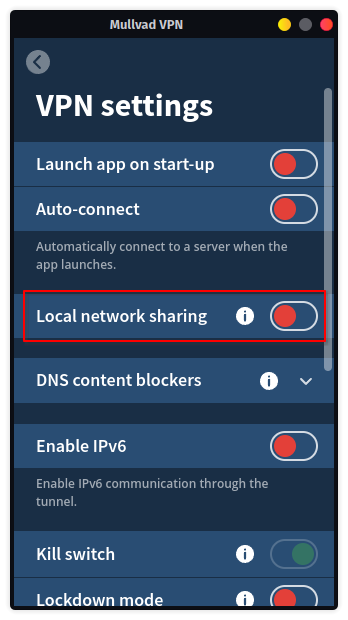

Fun fact, Caesar salad is named after the guy who invented it, an Italian living in Mexico at the time.


Fun fact, Caesar salad is named after the guy who invented it, an Italian living in Mexico at the time.


I mean. I can’t because I defederated from Threads. But neat, I guess.


I could go in-depth, but really, the best way I can describe my docker usage is as a simple and agnostic service manager. Let me explain.
Docker is a container system. A container is essentially an operating system installation in a box. It’s not really a full installation, but it’s close enough that understanding it like that is fine.
So what the service devs do is build a container (operating system image) with their service and all the required dependencies - and essentially nothing else (in order to keep the image as small as possible). A user can then use Docker to run this image on their system and have a running service in just a few terminal commands. It works the same across all distributions. So I can install whatever distro I need on the server for whatever purpose and not have to worry that it won’t run my Docker services. This also means I can test services locally on my desktop without messing with my server environment. If it works on my local Docker, it will work on my server Docker.
There are a lot of other uses for it, like isolated development environments and testing applications using other Linux distro libraries, to name a couple, but again, I personally mostly just use it as a simple service manager.
tldr + eli5 - App devs said “works on my machine”, so Docker lets them ship their machine.


That work has already started with Fediseer. It’s not automatic, but it’s really easy, which is probably the best we’ll get for a while.


That sounds like the default GitHub boilerplate message, to be fair.


I haven’t had a deletion request come around yet, but I’ve had the pict-rs documentation in my back pocket just in case. My instance allows NSFW, so I made sure I knew how to do this before deploying.
I agree with the author, though, it definitely shouldn’t be so hard to delete images. Hopefully the Lemmy devs tackle these issues quickly.


Layoffs for three of their most successful studios? That’s surprising.


In general, I agree, but it seems Mozilla is trying to do the right thing by AI. Offline translation is neat. And the Review Checker they just introduced uses AI to spot fake Amazon reviews. I think that’s pretty cool.


Haha, yeah, I’m familiar with the work culture in Japan. I’ve heard from other developers currently working there that it’s much better working for newer and/or international companies.


I’m taking my conversation-level Japanese courses this year and have been looking to land a dev job in Japan. From the sound of it, I’d like working for Pocket Pair a lot. But then again, most companies make their employment sound fantastic…


My ISP says my IP is technically dynamic, but it hasn’t changed once in the 6 years I’ve had their service. But that’s for the best, since they’re the only choice for symmetrical gigabit and their only option for static IPs is for business accounts.
So I continue to trust that they won’t change it. Fingers crossed.


I didn’t even know you could roll back.


I’m out of the loop on DDG, what did they do?

I started my homelab with a small form factor PC (not a NUC specifically, but similar). They can be very capable servers, depending on specs and your needs.
As for towers, you can do standard consumer workstations, too. I game on PC, so when I build a new rig every 3 or 4 years, my old one goes in the closet. Sometimes I just add it and have another server, sometimes I donate the current server to a friend or school. Point being, you don’t have to have a Threadripper CPU and ECC RAM to run a server.
That being said, if you plan on hosting critical services or non-critical-but-public services that you want to have high availability and stability, it might be a good idea to upgrade to enterprise hardware eventually. But definitely not needed if you’re just starting out or running personal, non-critical stuff.


A more crude variation than using dedicated ripping tools is using yt-dlp. If you need a login to a service, you can pass the username and password or login with a browser and pass in the browser’s cookies. I’ve personally heard you can do that to at least rip sub-gated Twitch VODs, anyway.


Hmmm. I would think that would work, but this is about the extent of my networking knowledge, sorry. :(


The tool tip gives the IP ranges that it opens up, can you make your OpenVPN network live in one of those ranges and try?


You need to enable local network sharing on the Mullvad devices.



I’ve seen the same speculation. The video in question is here. I’m skeptical because it looks like the area has power, but then some people are saying the area with power is actually Ashkelon and Gaza is the dark section. But then this video also apparently made the rounds in 2022? There’s a lot of disinformation going on.
Reuters and the AP are officially reporting it as an Israeli airstrike, though, so until we hear anything else, I’m believing them.
Samesies! Happens almost anytime I’m drinking a cold drink.